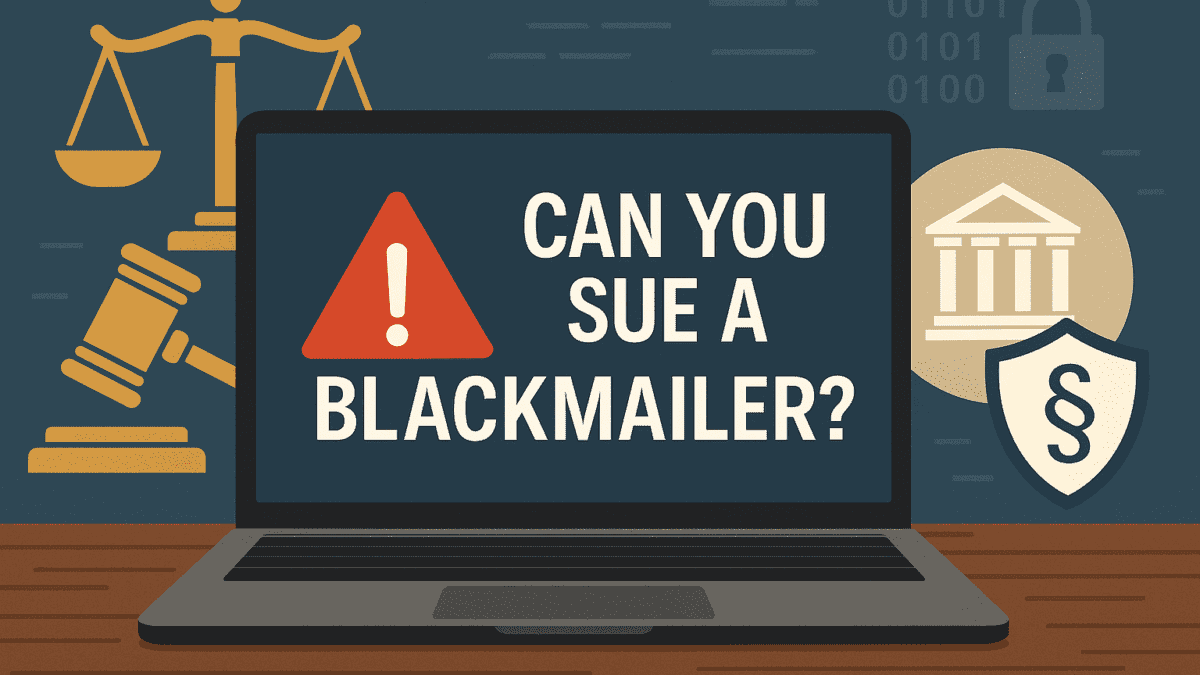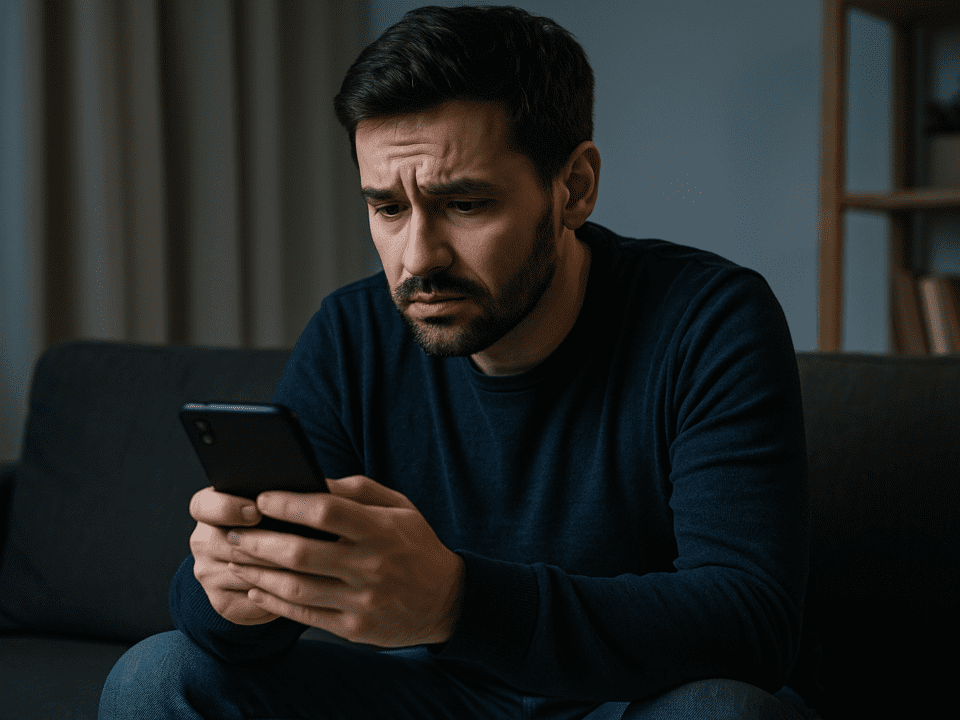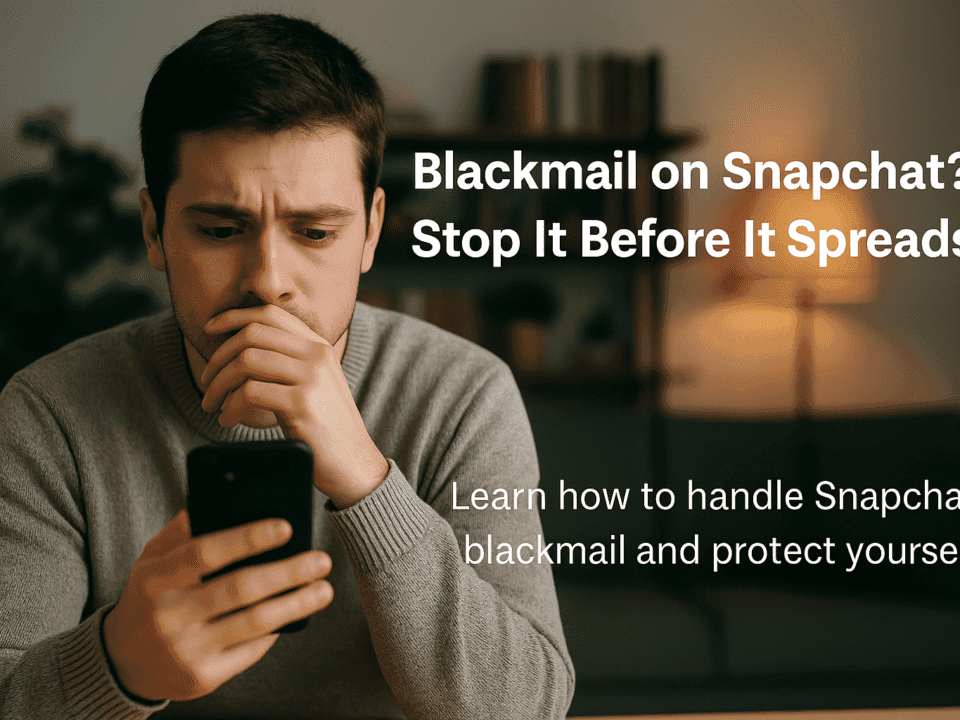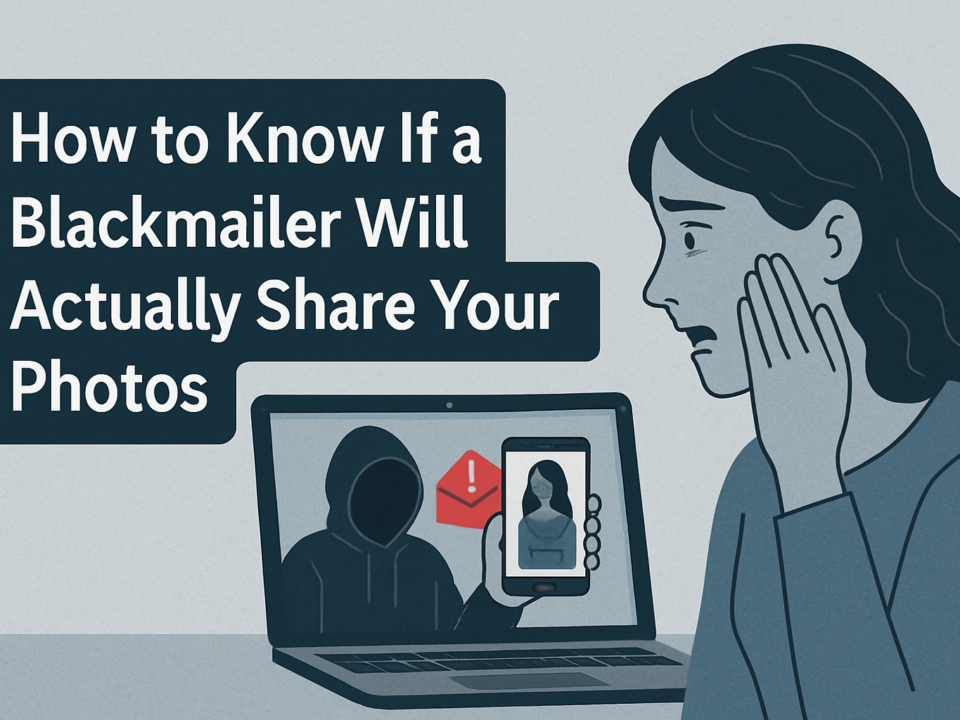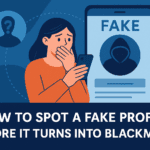
Is It Illegal to Share Someone’s Private Photos Without Consent?
June 17, 2025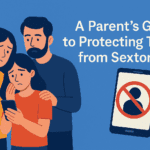
A Parent’s Guide to Protecting Teens from Sextortion
June 18, 2025That Feeling of Powerlessness Isn’t Permanent
When someone threatens to leak your private photos or messages unless you give in to their demands — it can feel like you’re completely trapped. Whether the blackmailer is a stranger online or someone you once trusted, the fear is real. But here’s what most victims don’t realize:
Blackmail is illegal in most countries — and yes, you can sue.
The law is on your side more than you think. Let’s break down what legal options you may have if you're being blackmailed online.
What Counts as Blackmail or Sextortion?
Blackmail becomes a criminal act when someone uses threats to force you into doing something — like sending money, more photos, or staying silent. When private photos or videos are involved, it’s often referred to as sextortion.
Some common examples:
“Send me more or I’ll leak your photos.”
“Pay $500 or I’ll message your family.”
“If you block me, I’ll expose you.”
Whether or not they’ve leaked anything yet, even the threat alone is a crime.
Can You Actually Sue a Blackmailer?
Yes — in many cases, you can sue a blackmailer in civil court. Criminal charges (handled by the police) are separate from a civil lawsuit where you seek damages for emotional distress, privacy violations, or financial loss.
You may be able to sue for:
Emotional trauma
Defamation if anything was posted publicly
Loss of reputation
Invasion of privacy
Breach of trust (if the blackmailer was someone you knew)
However, it’s easier to sue when the blackmailer’s identity is known. If you're not sure how to begin, here's what to do if someone is blackmailing you online — and why it’s important to act quickly.
What If the Blackmailer Is Anonymous?
Online blackmailers often hide behind fake accounts, but they’re not invincible. Law enforcement and cyber experts can trace digital footprints — including IP addresses, phone numbers, and payment methods.
In many countries, courts even allow “John Doe” lawsuits. This means you can begin legal proceedings without knowing the person’s identity yet — and use the court’s help to unmask them.
What Does the Law Say in Your Country?
🇺🇸 United States
Blackmail is both a state and federal crime. Victims can file criminal complaints and also sue for damages in civil court. Laws differ slightly by state, but sextortion involving minors is aggressively prosecuted.
🇬🇧 United Kingdom
Under the Serious Crime Act 2015 and Malicious Communications Act, blackmail is a criminal offence. Civil action for emotional distress or defamation may also apply.
🇪🇺 European Union
The General Data Protection Regulation (GDPR) protects individuals from unlawful processing or exposure of private data. Sextortion involving leaked photos can lead to both criminal penalties and civil compensation claims in most EU member states.
🇮🇳 India
Online blackmail and sextortion are covered under the IT Act (Section 66E) and IPC Sections 354C, 506, 509. Police reports can be filed with cybercrime units. Civil claims are possible for defamation and mental harassment.
🇦🇺 Australia
Sextortion falls under Criminal Code Act 1995, including use of electronic communication to menace or harass. Victims can press charges and may sue for damages tied to emotional distress or privacy violation.
If you're not sure how to begin the legal process, here's a practical guide on how to report sextortion to the police that walks you through the steps.
Should You Hire a Lawyer?
If you know the blackmailer’s real name, location, or phone number — it’s wise to consult a lawyer who specializes in online crimes. They can:
Send legal notices
Freeze or remove content from social media
Initiate civil or criminal proceedings
Help you claim compensation for psychological or reputational harm
Even if you’re unsure about suing, a legal consultation can help you understand all available options.
What If You Just Want the Blackmail to Stop?
Not everyone wants to take the case to court — and that’s okay. Many victims just want to feel safe, make sure the photos are deleted, and prevent future contact.
That’s where professional help can make a real difference. Services like Blackmail Shield’s private removal support can assist in removing content, tracing blackmailer accounts, and restoring your privacy — often faster than waiting for a lengthy legal process.
Final Thought: You’re Not Powerless
Being blackmailed can feel like your life is spiraling out of control. But the law is designed to protect you — not punish you. Whether you go the legal route or choose a more private approach, you do have options.
You don’t need to suffer in silence, and you definitely don’t need to face this alone.

